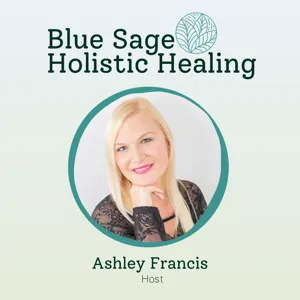Health Frontiers Radio - The Critical Role of the Gut Microbiome in Immunity
As the world embraces getting back to work, many are justifiably concerned about the health and safety of their loved ones and the confusion over how to best protect their families. Join our team as we discuss the critical role of the gut microbiome in immunity and its direct link to mental and physical health.
A healthy gut microbiome or terrain will be around 80% beneficial bacteria and 20% other bacteria (physiologically unpleasant flora like candida, e.coli, etc.)
When this ratio gets flipped, this is when the terrain is prone to welcoming the things we don’t want.
NOW WHAT ARE THESE THINGS WE DON’T WANT?
Things that upset the ideal balance of microbes and leave our terrain vulnerable include:
- Antibiotics
- Refined sugars
- Vaccines
- OTC and prescription pain and fever medications
- Oral contraceptives
- Alcohol
- GMO’s
- Antibacterial hand soaps and hand sanitizers
- Antibacterial cleaning products
- Chlorine (swimming pools, tap water, bleach, etc.)
- Aspartame (artificial sweetener found in diet products
One of the most important things we can understand in order to have the best health possible is that the germ isn’t the problem!
*It is the gut biome or terrain that decides whether we get sick, get infected or not.
*It’s the terrain that decides if a wound will become infected
*It’s the terrain that makes one susceptible to disease
Our body has 10 times more microbes living within it than cells
So you can see that if we have more pathogenic (bad) than beneficial bacteria, it matters more than the health of our cells.
In fact, without any healthy microbes, we would die.
This is why antibiotic resistance is killing an increasing number of people around the world.
WHAT IS THE ROLE OF SOFT DRINKS, EVEN 0 AND 1 CALORIE TYPES IN THE DESTRUCTION OF THE BUT BIOME?
HOW DO YOU CREATE A HEALTHIER GUT BIOME
Gut health refers to the balance of microorganisms that live in the digestive tract. Looking after the health of the gut and maintaining the right balance of these microorganisms is vital for physical and mental health, immunity, and more. These bacteria, yeasts, and viruses — of which there are around 100 trillion — are also called the “gut microbiome” or “gut flora.”
Many microbes are beneficial for human health, and some are even essential. Others can be harmful, especially when they multiply. In this article, we list 10 scientifically supported ways to improve the gut microbiome and enhance overall health.
1. Take probiotics and eat fermented foods
To boost the beneficial bacteria, or probiotics, in the gut, some people choose to take probiotic supplements.
These are available in health food stores, drug stores, and online.
Some research has suggested that taking probiotics can support a healthy gut microbiome and that it may prevent gut inflammation and other intestinal problems.
Fermented foods are a natural source of probiotics.
Consuming the following foods regularly may improve gut health:
- fermented vegetables
- kefir
- kimchi
- kombucha
- miso
- sauerkraut
- tempeh
2. Eat prebiotic fiber
Probiotics feed on nondigestible carbohydrates called prebiotics. This process encourages beneficial bacteria to multiply in the gut.
Research from 2017 suggested that prebiotics may help probiotics become more tolerant to certain environmental conditions, including pH and temperature changes.
People who want to enhance their gut health may wish to include more of the following prebiotic-rich foods in their diet:
- asparagus
- bananas
- chicory
- garlic
- Jerusalem artichoke
- onions
- whole grains
3. Eat less sugar and sweeteners
Eating a lot of sugar or artificial sweeteners may cause gut dysbiosis, which is an imbalance of gut microbes.
The authors of a 2015 study in animals suggested that the standard Western diet, which is high in sugar and fat, negatively affects the gut microbiome. In turn, this can influence the brain and behavior.
Another animal study reported that the artificial sweetener aspartame increases the number of some bacterial strains that are linked with metabolic disease.
Metabolic disease refers to a group of conditions that increase the risk of diabetes and heart disease.
Research has also indicated that human use of artificial sweeteners can negatively impact blood glucose levels due to their effects on gut flora. This means that artificial sweeteners may increase blood sugar despite not actually being sugar.
4. Reduce stress
Sleep deprivation can negatively affect gut health.
Managing stress is important for many aspects of health, including gut health.
Animal studies have suggested that psychological stressors can disrupt the microorganisms in the intestines, even if the stress is only short-lived.
In humans, a variety of stressors can negatively affect gut health, including:
- psychological stress
- environmental stress, such as extreme heat, cold, or noise
- sleep deprivation
- disruption of the circadian rhythm
Some stress management techniques include meditation, deep breathing exercises, and progressive muscle relaxation.
Exercising regularly, sleeping well, and eating a healthy diet can also reduce stress levels.
5. Avoid taking antibiotics unnecessarily
Although it is often necessary to take antibiotics to combat bacterial infections, overuse is a significant public health concern that can lead to antibiotic resistance.
Antibiotics are also damaging to the gut microbiota and immunity, with some research reporting that even 6 months after their use, the gut still lacks several species of beneficial bacteria.
According to the Centers for Disease Control and Prevention (CDC), doctors in the United States prescribe around 30% of antibiotics unnecessarily.
As a result, the CDC recommends that people discuss antibiotics and alternative options with their doctor before use.
6. Exercise regularly
Regular exercise contributes to good heart health and weight loss or weight maintenance. Research has also suggested that it may also improve gut health, which may, in turn, help control obesity.
Working out may increase species diversity. A 2014 study found that athletes had a larger variety of gut flora than nonathletes.
However, the athletes also ate a different diet to the control group, which could account for the differences in their microbiomes.
The Physical Activity Guidelines for Americans recommend that adults engage in at least 150 minutes of moderate-intensity exercise each week, along with muscle-strengthening activities on 2 or more days each week.
7. Get enough sleep
Getting enough good-quality sleep can improve mood, cognition, and gut health.
A 2014 animal study indicated that irregular sleep habits and disturbed sleep can have negative outcomes for the gut flora, which may increase the risk of inflammatory conditions.
Establish healthy sleep habits by going to bed and getting up at the same time each day. Adults should get at least 7 hours of sleep per night.
8. Use different cleaning products
Just as antibiotics can disrupt the gut microbiota, so too can disinfectant cleaning products, according to the results of one study. The 2018 research analyzed the gut flora of over 700 infants ages 3–4 months.
The researchers found that those who lived in homes where people used disinfectant cleaning products at least weekly were twice as likely to have higher levels of Lachnospiraceae gut microbes, a type associated with type 2 diabetes and obesity.
At age 3, these infants had a higher body mass index (BMI) than children without exposure to such high levels of disinfectants.
9. Avoid smoking
Smoking affects gut health as well as the health of the heart and lungs. It also greatly increases the risk of cancer.
A 2018 review of research published over a 16-year period found that smoking alters the intestinal flora by increasing potentially harmful microorganisms and decreasing the levels of beneficial ones.
These effects may increase the risk of intestinal and systemic conditions, such as inflammatory bowel disease (IBD).
Summary
Maintaining a healthy gut contributes to better overall health and immune function.
By making appropriate lifestyle and dietary changes, people can alter the diversity and number of microbes in their gut for the better.
Positive changes a person can make include taking probiotics, following a fiber-rich vegetarian diet, and avoiding the unnecessary use of antibiotics and disinfectants.
Other simple lifestyle changes a person can make include getting enough sleep and exercising regularly.
However, a person should talk to their doctor before making any drastic changes to their diet. This is because for some people, such as those with irritable bowel syndrome or other medical conditions, probiotics and fiber-rich or vegetarian diets may not be helpful.
Logos Nutritionals deal of the week: 10% off the Digestive Health Pack. Use coupon code: GUTHELP at check out.









